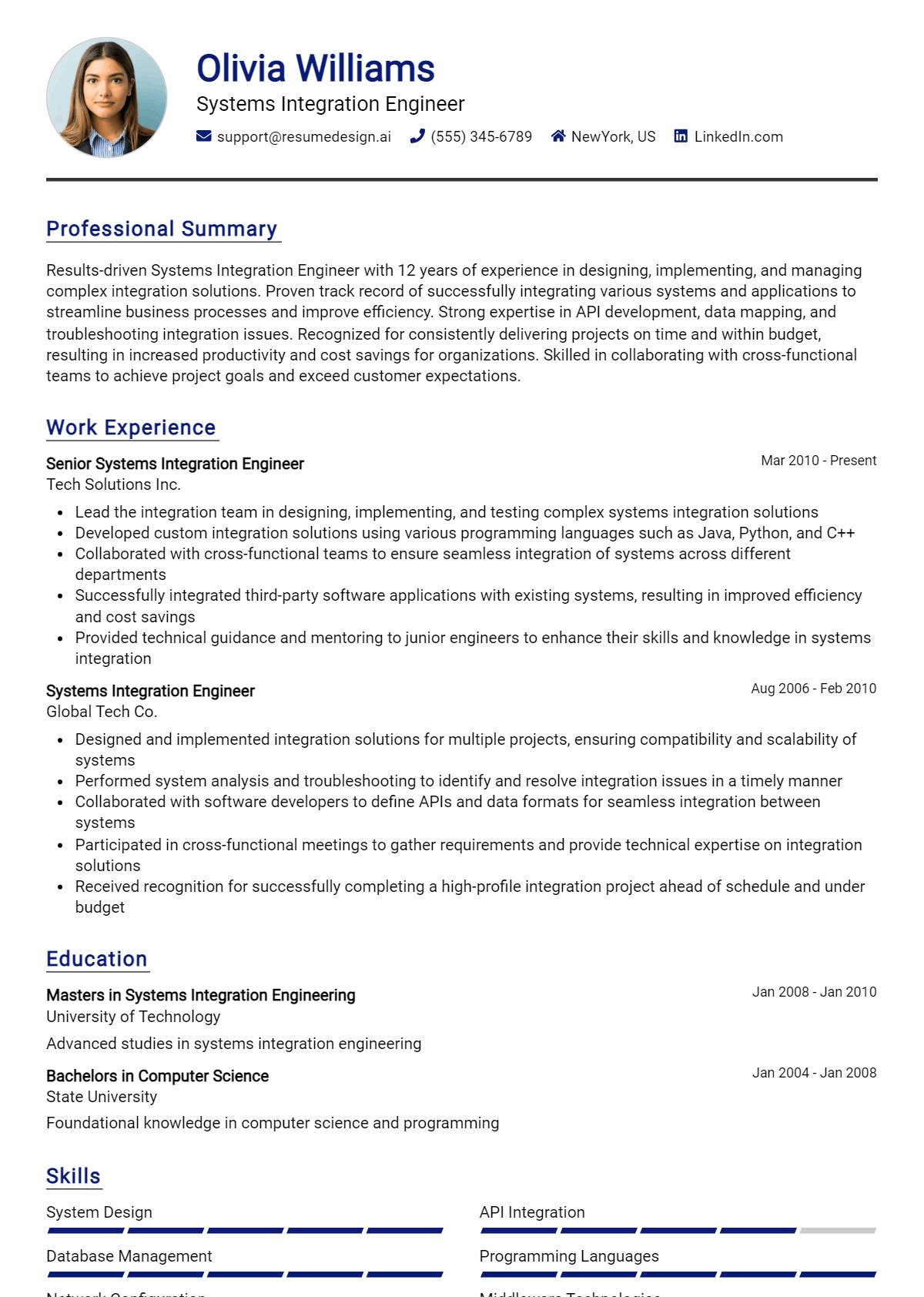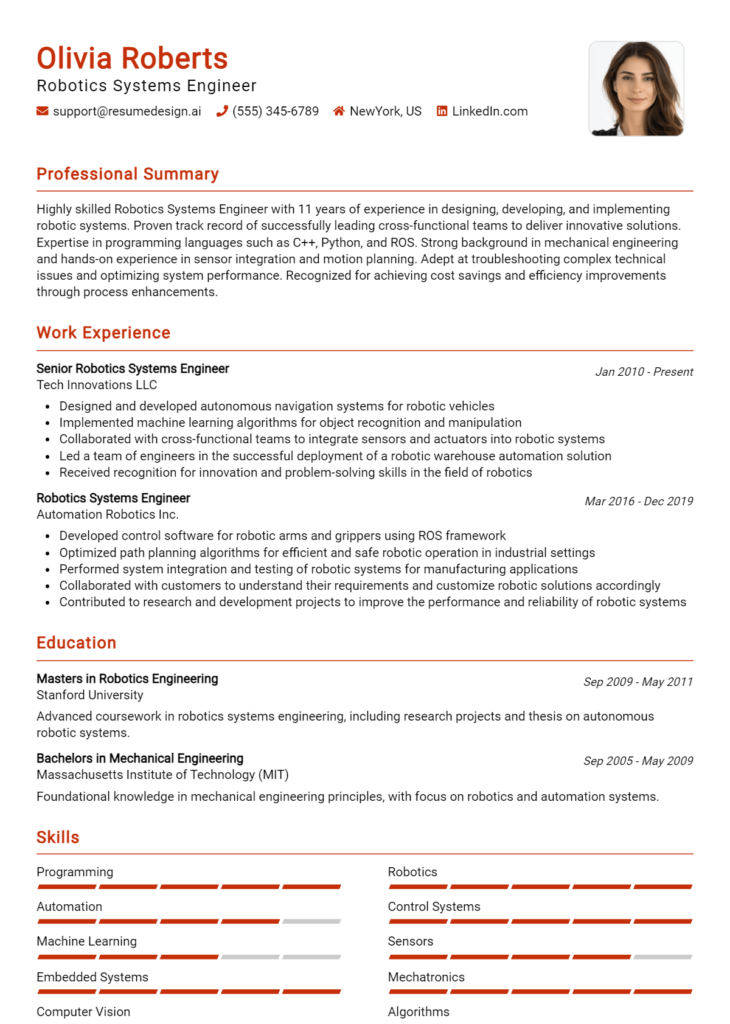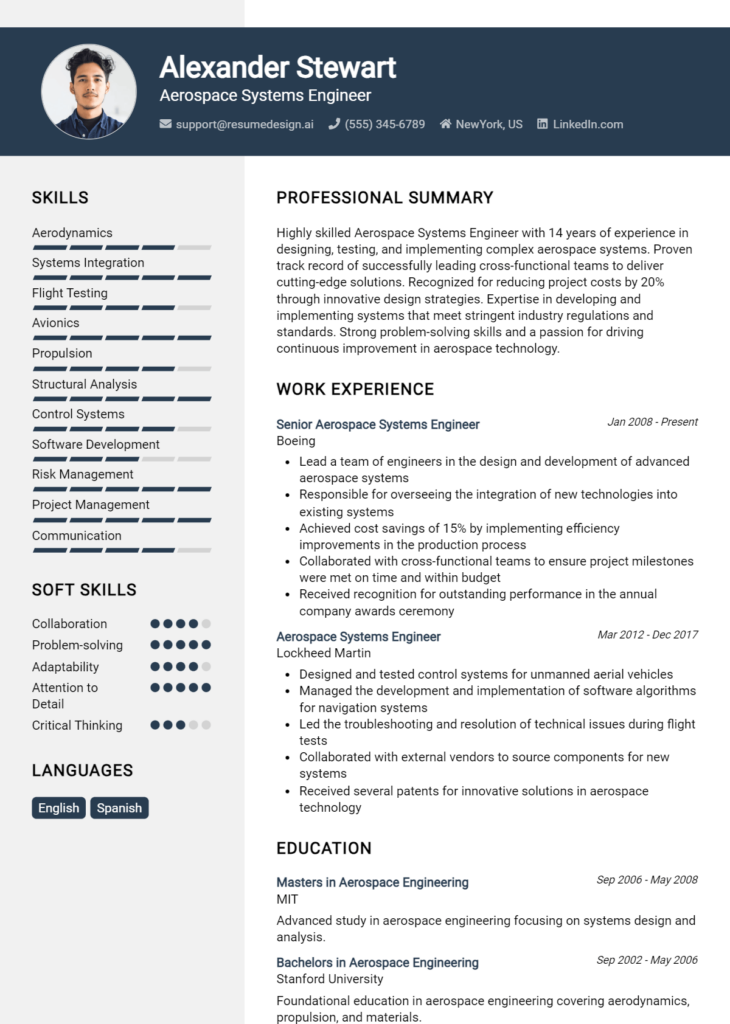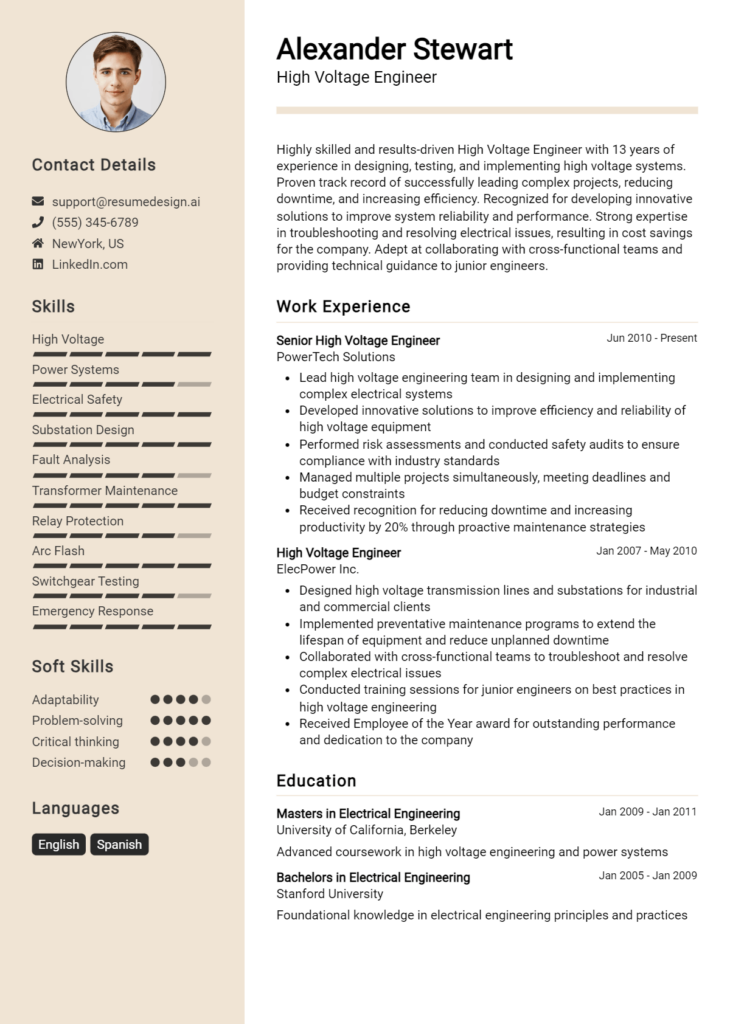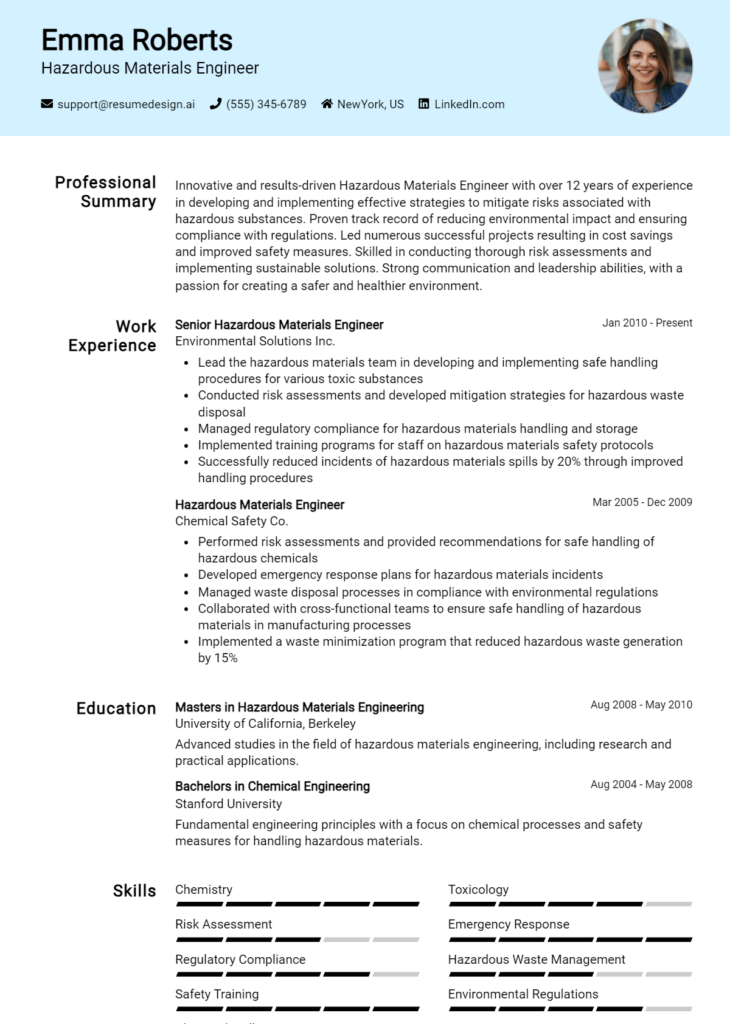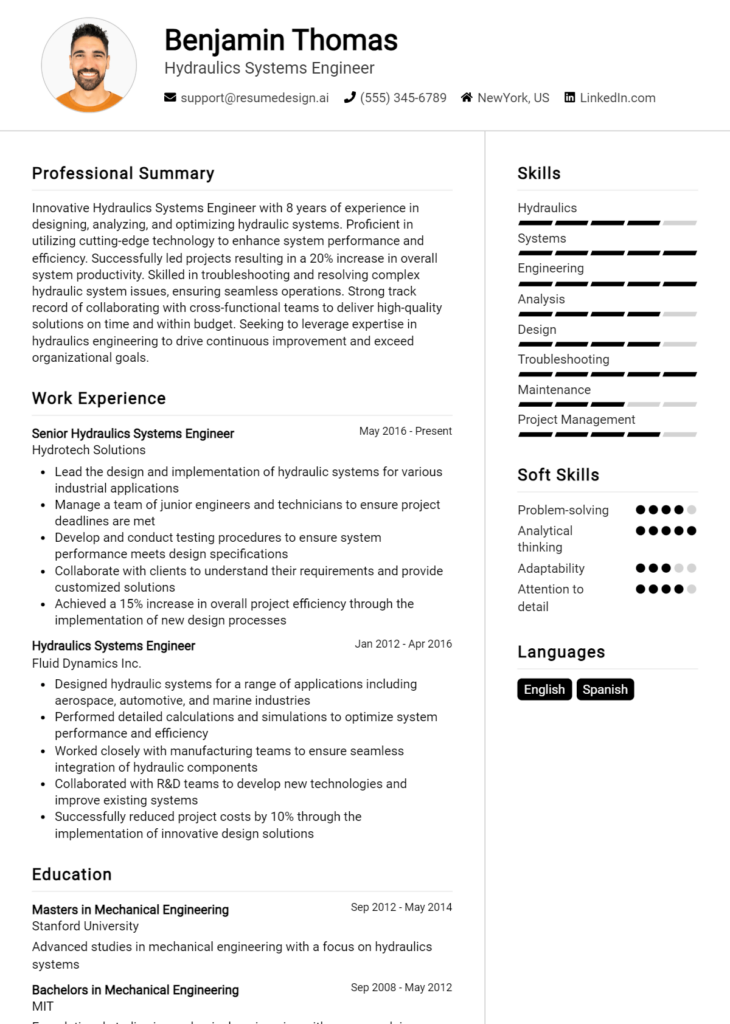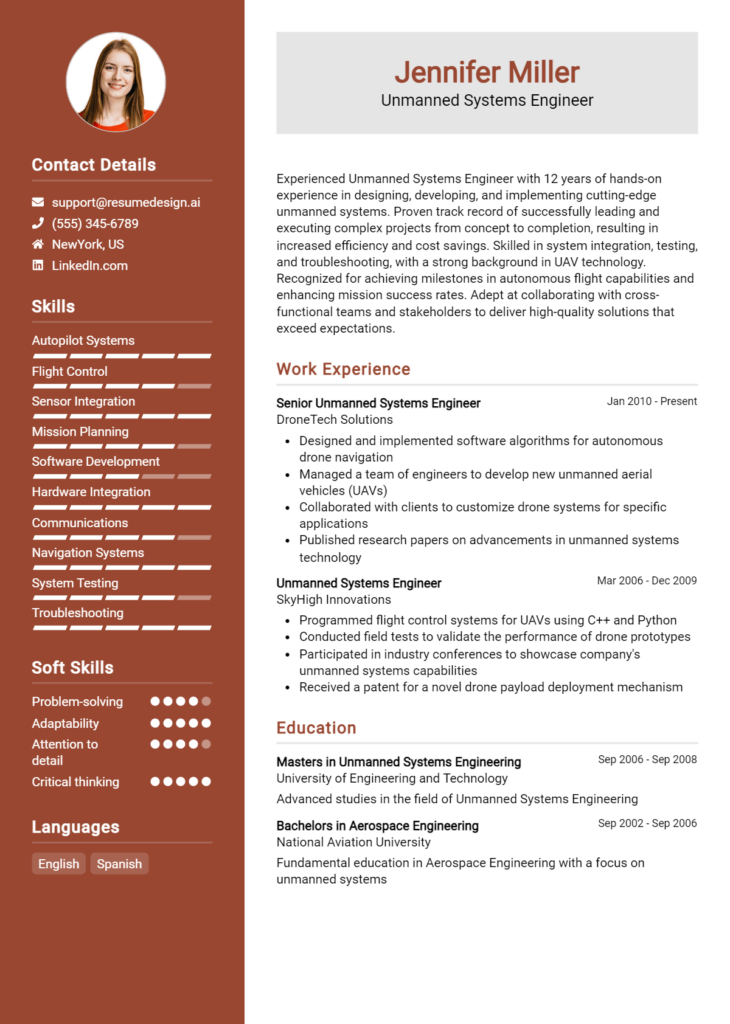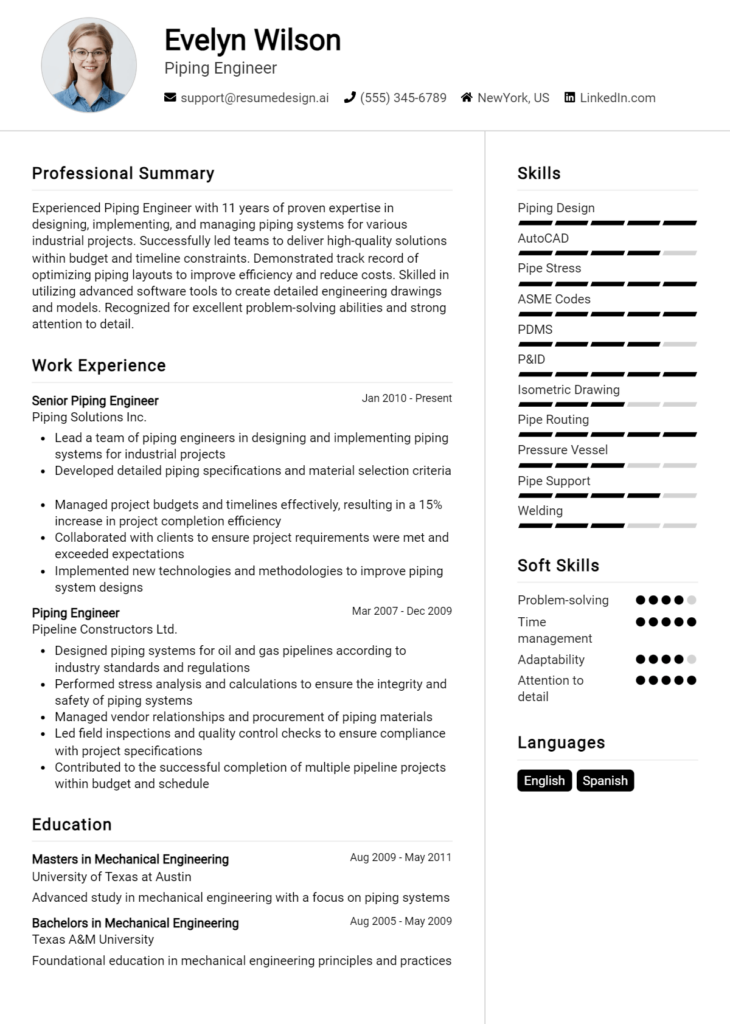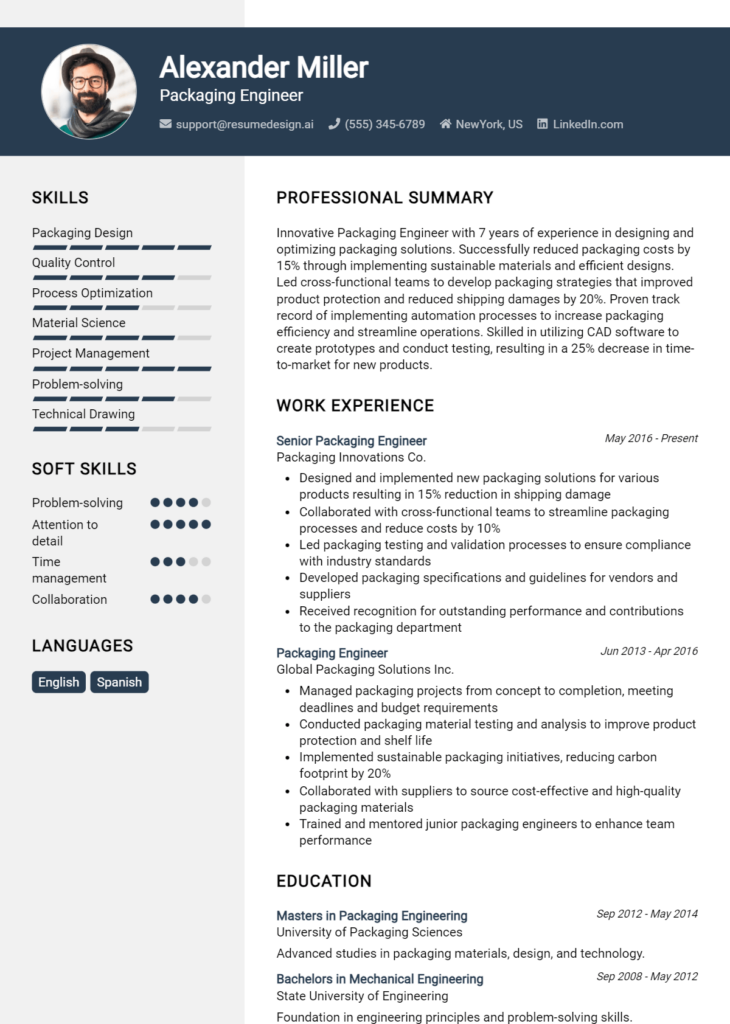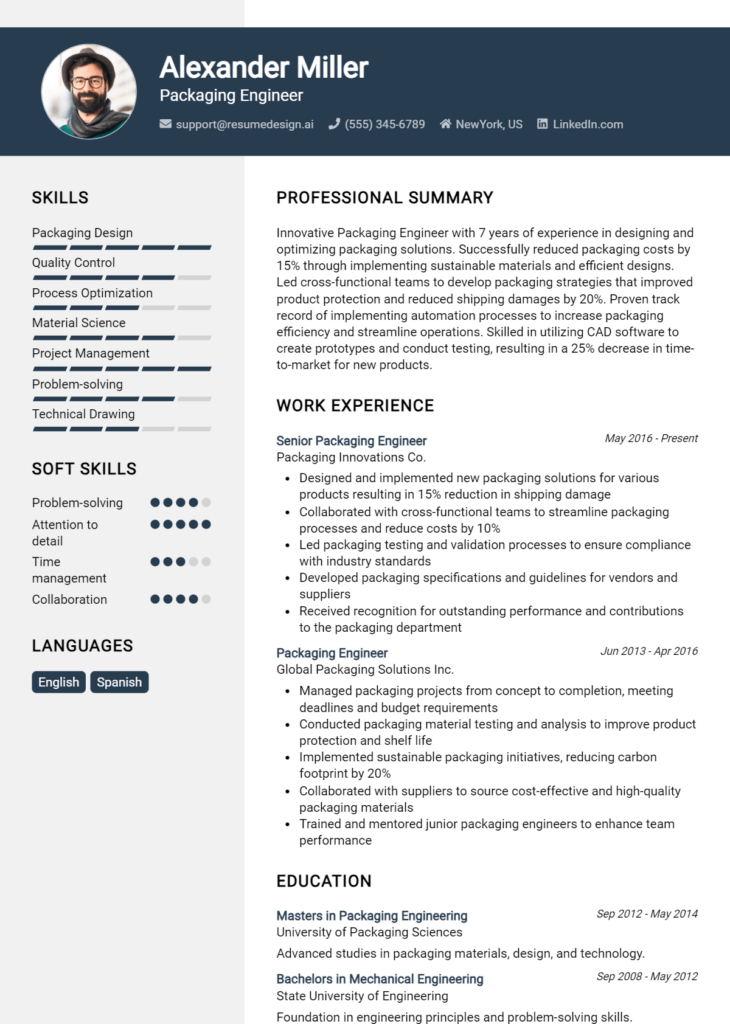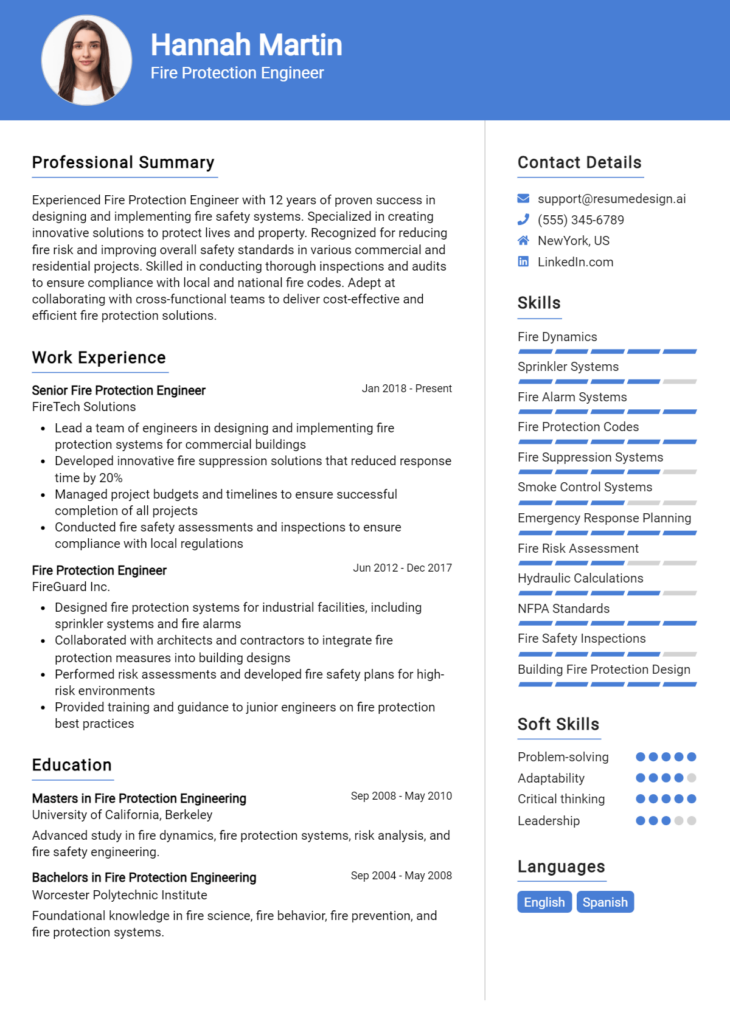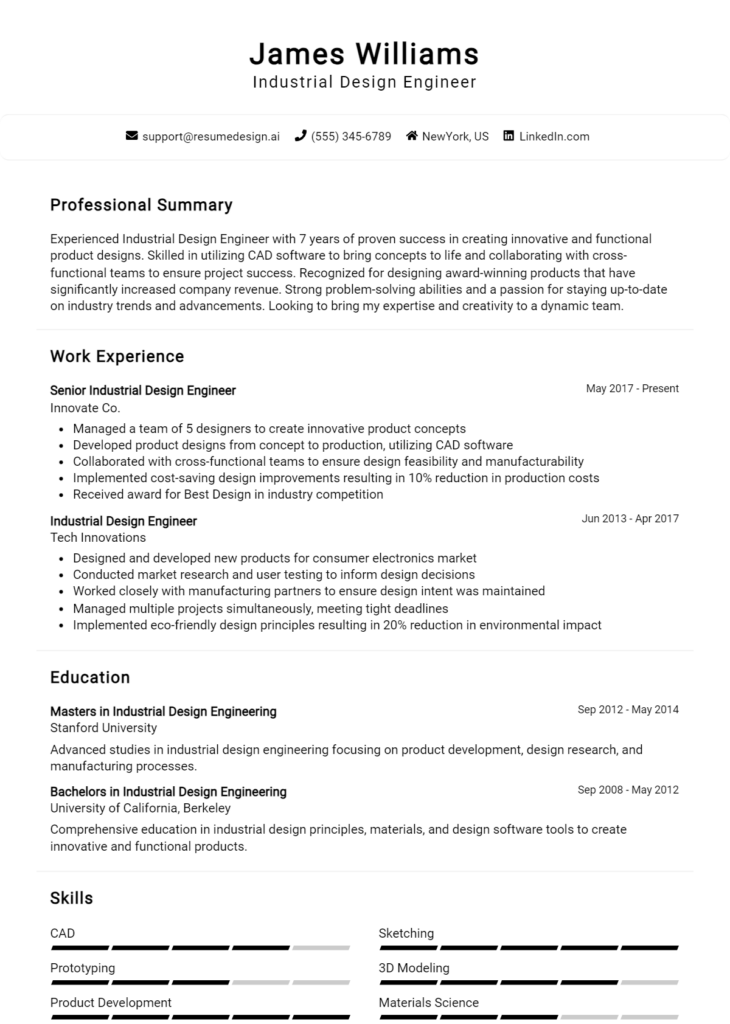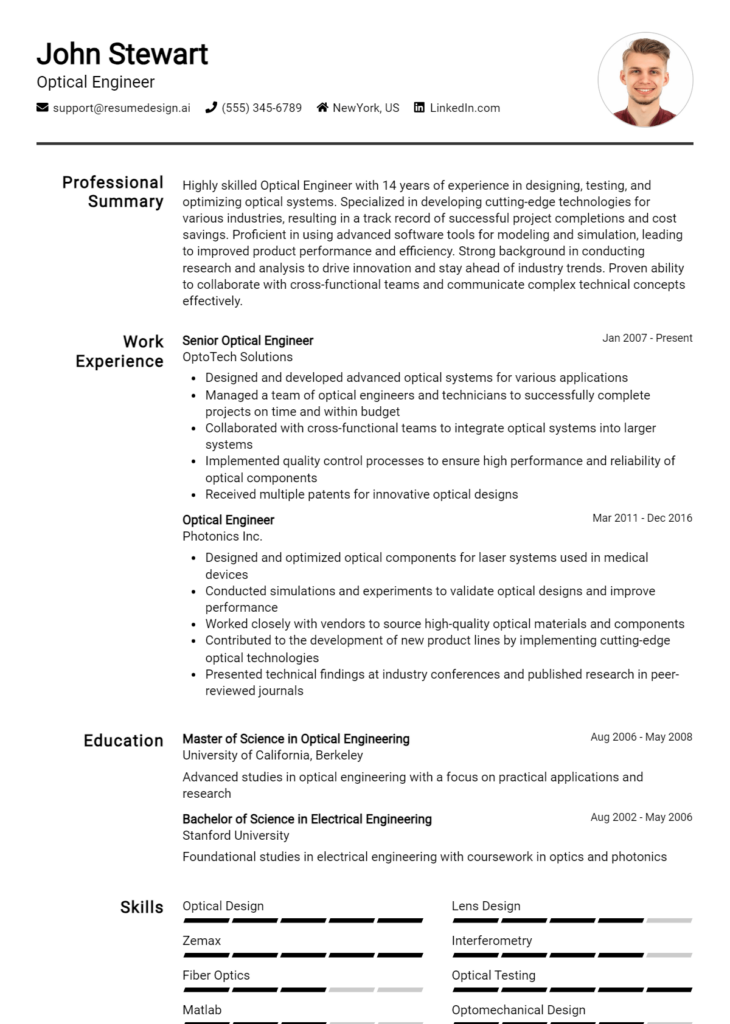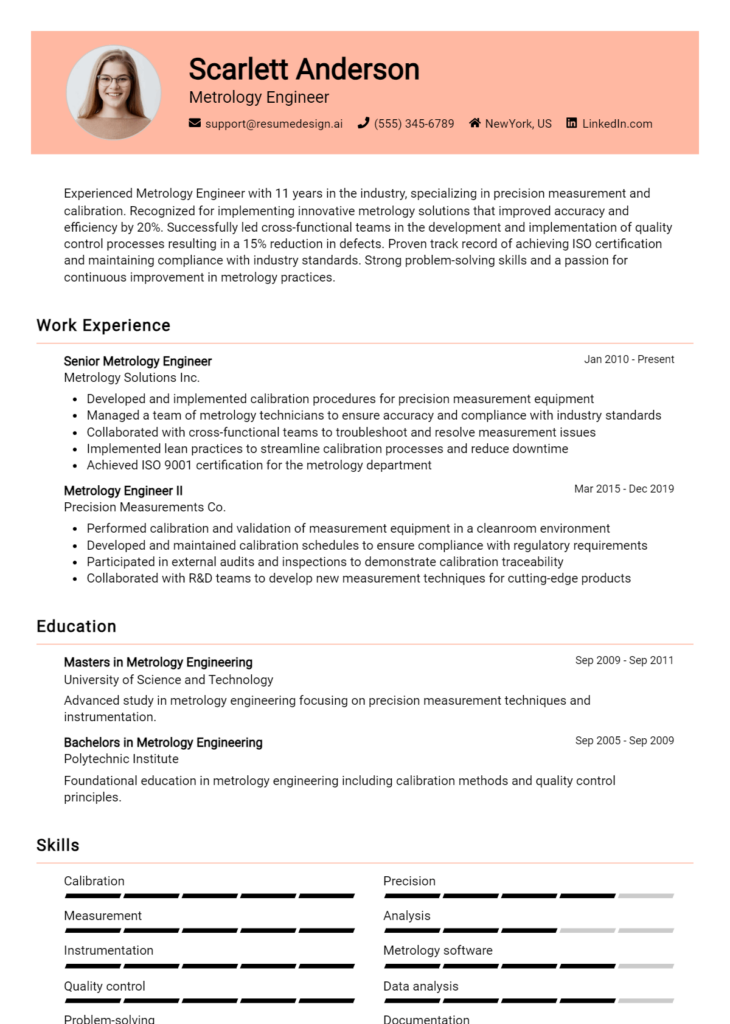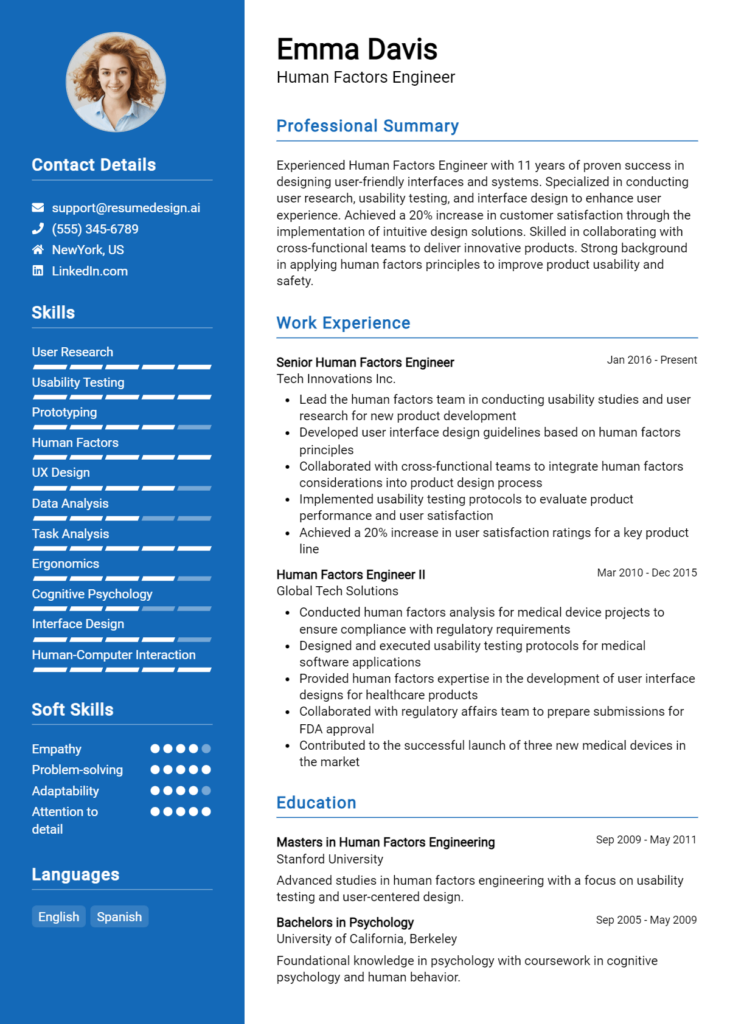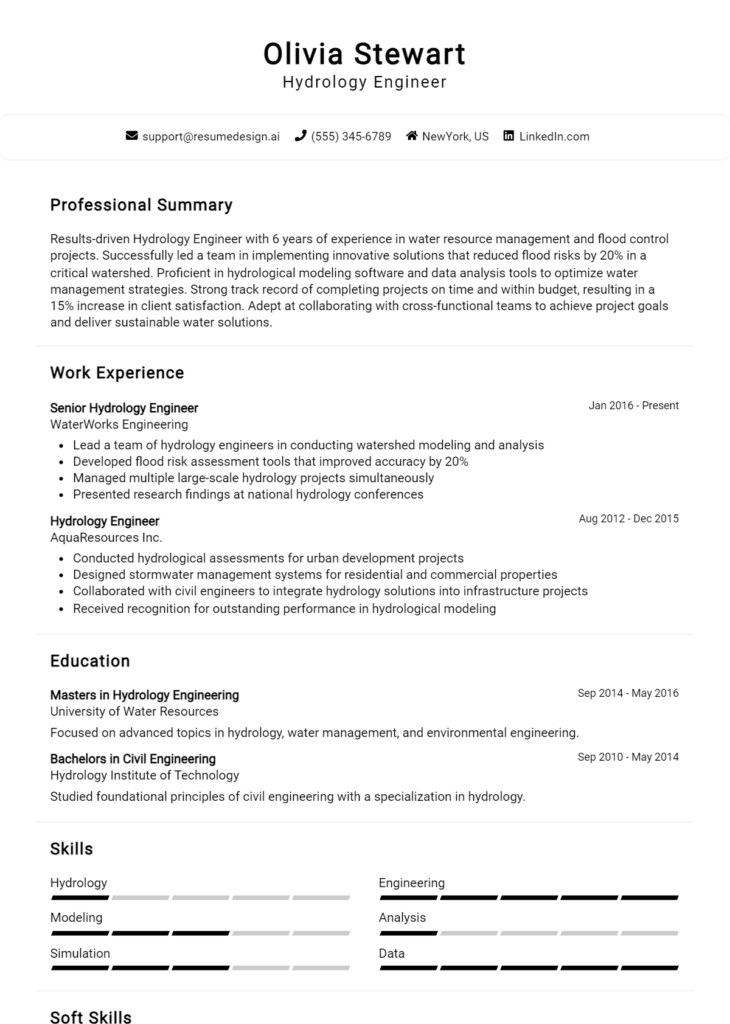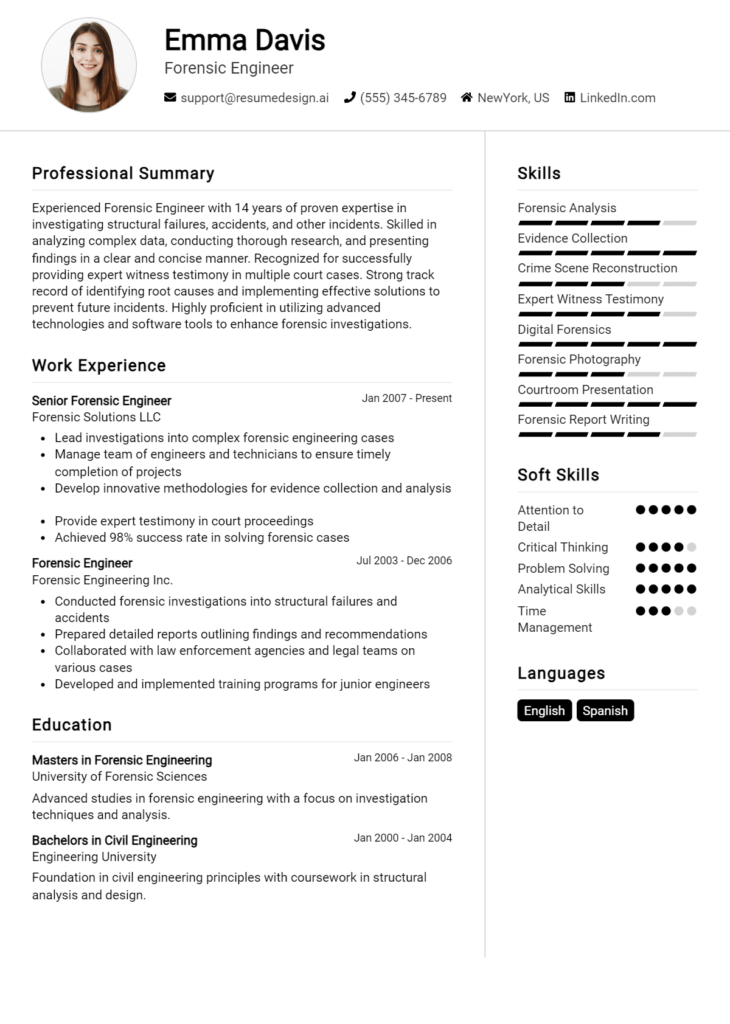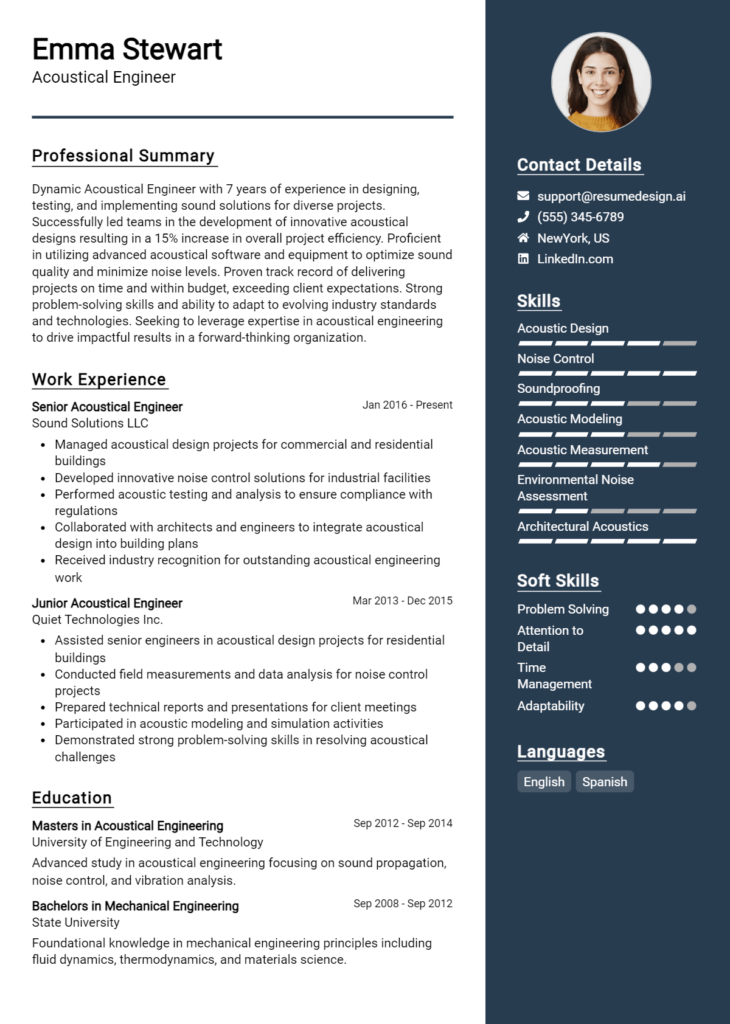Systems Integration Engineer Core Responsibilities
A Systems Integration Engineer plays a crucial role in bridging various departments by ensuring seamless communication and functionality between different systems and technologies. Key responsibilities include designing integration solutions, troubleshooting technical issues, and collaborating with cross-functional teams to align system capabilities with business objectives. Essential skills encompass strong technical knowledge, operational expertise, and excellent problem-solving abilities, all of which contribute significantly to achieving organizational goals. A well-structured resume can effectively highlight these qualifications, showcasing the candidate's value to potential employers.
Common Responsibilities Listed on Systems Integration Engineer Resume
- Design and implement integration solutions between disparate systems.
- Collaborate with software developers, operations teams, and stakeholders.
- Troubleshoot and resolve integration issues and technical challenges.
- Conduct system testing and validation for performance optimization.
- Document integration processes and maintain technical specifications.
- Ensure compliance with industry standards and best practices.
- Participate in project planning and requirement gathering sessions.
- Provide training and support to end-users on integrated systems.
- Monitor system performance and implement improvements.
- Utilize scripting and programming languages for automation tasks.
- Manage and maintain integration tools and platforms.
- Support change management and version control processes.
High-Level Resume Tips for Systems Integration Engineer Professionals
In today's competitive job market, a well-crafted resume is crucial for Systems Integration Engineer professionals looking to make a lasting impression on potential employers. Often the first point of contact between a candidate and hiring managers, the resume serves as a window into the candidate's skills, experiences, and achievements. It must not only highlight technical proficiency but also demonstrate a proven track record of success in systems integration projects. This guide aims to provide practical and actionable resume tips specifically tailored for Systems Integration Engineer professionals, equipping you with the tools needed to stand out in the hiring process.
Top Resume Tips for Systems Integration Engineer Professionals
- Tailor your resume to each job description by incorporating relevant keywords and phrases that align with the specific requirements of the position.
- Highlight your technical skills by listing industry-specific tools, programming languages, and technologies you are proficient in, such as APIs, middleware, and cloud services.
- Showcase your relevant experience by detailing specific projects you have worked on, emphasizing your role in the integration process and the results achieved.
- Quantify your achievements to provide concrete evidence of your impact; for example, mention efficiencies gained, costs reduced, or systems improved.
- Include certifications or training related to systems integration, such as those from recognized organizations, to enhance your qualifications.
- Use action verbs to describe your responsibilities and accomplishments, creating a dynamic narrative that engages the reader.
- Keep your resume concise and focused; ideally, limit it to one or two pages while ensuring all information is relevant and impactful.
- Incorporate a professional summary at the top that encapsulates your experience, skills, and what you bring to the table as a Systems Integration Engineer.
- Ensure proper formatting and a clean layout to make your resume easy to read, using bullet points and headings to organize information effectively.
By implementing these tips, you can significantly increase your chances of landing a job in the Systems Integration Engineer field. A polished and targeted resume not only showcases your qualifications but also demonstrates your commitment to excellence and attention to detail, qualities that are highly valued in this profession.
Why Resume Headlines & Titles are Important for Systems Integration Engineer
In the competitive field of Systems Integration Engineering, a well-crafted resume headline or title serves as a crucial first impression for candidates. These brief phrases encapsulate a candidate's key qualifications and can immediately grab the attention of hiring managers, leading them to explore the resume further. A strong headline should be concise, relevant, and directly related to the job being applied for, providing a snapshot of the candidate’s expertise and value proposition. By effectively summarizing qualifications in an impactful manner, a resume headline can significantly enhance a candidate's chances of standing out in a crowded applicant pool.
Best Practices for Crafting Resume Headlines for Systems Integration Engineer
- Keep it concise: Aim for one impactful phrase rather than a lengthy description.
- Be role-specific: Tailor the headline to match the specific Systems Integration Engineer position.
- Highlight key skills: Include essential skills or technologies that are relevant to the role.
- Use industry terminology: Utilize keywords that resonate within the Systems Integration field.
- Showcase achievements: If possible, include quantifiable accomplishments to demonstrate value.
- Focus on unique strengths: Identify what sets you apart from other candidates.
- Maintain professionalism: Ensure the tone and language reflect a professional demeanor.
- Avoid clichés: Steer clear of overused phrases that can diminish the impact of your headline.
Example Resume Headlines for Systems Integration Engineer
Strong Resume Headlines
"Experienced Systems Integration Engineer with Proven Track Record in Streamlining Processes and Enhancing System Performance"
“Certified Systems Integration Specialist with 10+ Years in Cross-Platform Solutions and Project Management”
“Innovative Systems Integration Engineer Skilled in API Development and Cloud Technologies”
Weak Resume Headlines
“Engineer Looking for a Job”
“Systems Integration Engineer with Experience”
The strong headlines are effective because they not only convey the candidate’s specific skills and experience but also include measurable achievements and industry-specific terms that resonate with hiring managers. In contrast, the weak headlines fail to impress due to their vague nature and lack of detail, making it difficult for hiring managers to gauge the candidate's qualifications or unique value. A compelling headline should spark curiosity and invite further exploration of the resume, while generic titles do little to differentiate a candidate in a competitive job market.
Writing an Exceptional Systems Integration Engineer Resume Summary
A well-crafted resume summary is crucial for a Systems Integration Engineer, as it serves as the first impression for hiring managers. This brief but impactful section quickly captures attention by highlighting key skills, relevant experience, and notable accomplishments that align with the job requirements. A strong summary should be concise and tailored specifically to the role the candidate is applying for, effectively setting the tone for the rest of the resume and increasing the chances of landing an interview.
Best Practices for Writing a Systems Integration Engineer Resume Summary
- Quantify achievements to demonstrate the impact of your work, such as cost savings or efficiency improvements.
- Focus on key skills that align with the job description, such as system design, troubleshooting, and project management.
- Tailor the summary for each specific job application to ensure relevance and appeal to the hiring manager’s needs.
- Use action verbs to convey a sense of proactivity and accomplishment.
- Incorporate industry-specific terminology to showcase your expertise and familiarity with the field.
- Keep it concise, ideally between 3 to 5 sentences, making every word count.
- Highlight collaborative experiences and teamwork skills, as integration often requires cross-departmental cooperation.
- Include any relevant certifications or technical proficiencies that enhance your qualifications for the role.
Example Systems Integration Engineer Resume Summaries
Strong Resume Summaries
Results-driven Systems Integration Engineer with over 5 years of experience in designing and implementing complex IT infrastructures, achieving a 30% reduction in system downtime through efficient integration solutions.
Skilled in project management and system optimization, successfully led a cross-functional team in integrating a new ERP system that improved data accuracy by 25% and reduced processing time by 40%.
Detail-oriented engineer with expertise in cloud-based integrations, having successfully migrated 10+ legacy systems to cloud platforms, resulting in a 50% increase in operational efficiency.
Innovative Systems Integration Engineer with a proven track record of enhancing system performance, recognized for delivering a multi-million-dollar integration project on time and under budget.
Weak Resume Summaries
Experienced engineer looking for an opportunity in systems integration and related fields.
Systems Integration Engineer with some experience and knowledge of various technologies.
The examples of strong resume summaries are considered effective because they provide specific details about achievements, quantify results, and directly relate to the responsibilities of a Systems Integration Engineer. In contrast, the weak summaries lack specificity and measurable outcomes, making them vague and less impactful, which can fail to capture the attention of hiring managers.
Work Experience Section for Systems Integration Engineer Resume
The work experience section of a Systems Integration Engineer resume is crucial as it serves as a testament to the candidate's technical skills, project management capabilities, and ability to deliver high-quality products. This section provides potential employers with insight into how well the candidate can apply their knowledge in real-world scenarios, manage teams effectively, and navigate complex integration challenges. By quantifying achievements and aligning previous roles with industry standards, candidates can demonstrate their value and readiness to contribute to prospective employers' goals.
Best Practices for Systems Integration Engineer Work Experience
- Highlight relevant technical skills and tools used in past roles.
- Quantify achievements with specific metrics or outcomes.
- Emphasize collaboration and teamwork in cross-functional settings.
- Detail leadership roles and responsibilities in project management.
- Align experience with industry standards and best practices.
- Include specific technologies and methodologies employed in projects.
- Showcase problem-solving abilities with real-world examples.
- Tailor experiences to match the job description of the position applied for.
Example Work Experiences for Systems Integration Engineer
Strong Experiences
- Led a cross-functional team of 10 engineers to successfully integrate a cloud-based solution, resulting in a 30% reduction in operational costs and a 20% increase in system uptime.
- Developed and implemented automated testing protocols that improved software release times by 40%, ensuring high-quality integration across multiple platforms.
- Managed the integration of legacy systems with new technologies, resulting in a seamless transition that enhanced data accuracy by 25% and reduced processing time by 50%.
- Collaborated with stakeholders to define project scope and deliverables, achieving a 95% satisfaction rate in post-implementation surveys.
Weak Experiences
- Worked on various integration projects with little detail on specific contributions or outcomes.
- Assisted in the development of software without mentioning the technologies or methodologies used.
- Participated in team meetings and discussions but failed to highlight any leadership or impactful roles.
- Involved in system upgrades without quantifying results or improvements achieved.
The examples provided illustrate a clear distinction between strong and weak experiences. Strong experiences are characterized by specific achievements, quantifiable results, and a clear demonstration of technical leadership and collaboration. In contrast, weak experiences lack detail, measurable outcomes, and fail to convey the candidate's true impact within their roles. This highlights the importance of presenting work experience in a compelling and results-oriented manner.
Education and Certifications Section for Systems Integration Engineer Resume
The education and certifications section of a Systems Integration Engineer resume is crucial in illustrating a candidate's academic qualifications and commitment to professional development. This section not only showcases the foundational knowledge gained through formal education but also highlights industry-relevant certifications and specialized training that validate the candidate's expertise. By detailing relevant coursework and credentials, candidates can significantly enhance their credibility, demonstrating to potential employers that they possess the necessary skills and knowledge to excel in the role of a Systems Integration Engineer.
Best Practices for Systems Integration Engineer Education and Certifications
- Prioritize relevance by including degrees and certifications directly related to systems integration or related fields.
- Provide detailed information about coursework that aligns with the job requirements, showcasing specific skills and knowledge.
- Highlight advanced or industry-recognized certifications, such as Certified Integration Professional (CIP) or Cisco Certified Network Professional (CCNP).
- Include specialized training programs that demonstrate continuous education and adaptability to new technologies.
- Organize the section in reverse chronological order, starting with the most recent qualifications to catch the employer's attention.
- Use clear, concise language, avoiding jargon that may not be understood by all HR professionals.
- Incorporate any honors or distinctions received during education or certification programs to set yourself apart.
- Consider adding any relevant industry conferences or workshops attended that enhance your professional profile.
Example Education and Certifications for Systems Integration Engineer
Strong Examples
- Bachelor of Science in Computer Engineering, University of Technology, 2021
- Certified Integration Professional (CIP), 2022
- Coursework in Network Design and Systems Architecture, University of Technology
- Cisco Certified Network Professional (CCNP), 2023
Weak Examples
- Associate Degree in Arts, Community College, 2019
- Certification in Basic Computer Skills, 2018
- Bachelor of Science in Philosophy, University of Arts, 2020
- Outdated certification in Windows Server 2003, 2015
The examples provided highlight the distinction between strong and weak qualifications based on their relevance and timeliness. Strong examples demonstrate a clear alignment with the role of a Systems Integration Engineer, showcasing pertinent degrees, certifications, and coursework that reflect the required skills for the job. Conversely, weak examples feature irrelevant or outdated qualifications that do not contribute to the candidate's credibility in the field, thereby diminishing their chances of securing the desired position.
Top Skills & Keywords for Systems Integration Engineer Resume
In the competitive field of systems integration engineering, showcasing the right skills on your resume is crucial for standing out to potential employers. A well-crafted resume not only highlights your technical abilities but also emphasizes your interpersonal skills, which are equally important in collaborating with cross-functional teams and ensuring successful project outcomes. Employers seek candidates who possess a blend of hard and soft skills, capable of tackling complex integration challenges while fostering effective communication and teamwork. As you build your resume, consider including a range of relevant skills that demonstrate your proficiency and versatility in this dynamic role.
Top Hard & Soft Skills for Systems Integration Engineer
Soft Skills
- Excellent communication skills
- Team collaboration and leadership
- Adaptability and flexibility
- Problem-solving and critical thinking
- Attention to detail
- Strong organizational skills
- Time management
- Customer-focused mindset
- Conflict resolution
- Ability to work under pressure
Hard Skills
- Proficiency in programming languages (e.g., Python, Java, C++)
- Knowledge of system architecture and design principles
- Experience with API integration and development
- Familiarity with cloud computing platforms (e.g., AWS, Azure)
- Understanding of network protocols and security
- Database management skills (e.g., SQL, NoSQL)
- Experience with DevOps practices and tools (e.g., Docker, Jenkins)
- Knowledge of software testing and validation processes
- Familiarity with project management methodologies (e.g., Agile, Scrum)
- Technical documentation and reporting skills
By effectively showcasing both your hard and soft skills, you can improve your chances of attracting the attention of hiring managers and demonstrating your readiness for the challenges of a Systems Integration Engineer role. Additionally, don't forget to highlight your work experience that complements these skills, illustrating your practical application of expertise in real-world scenarios.
Stand Out with a Winning Systems Integration Engineer Cover Letter
Dear [Hiring Manager's Name],
I am writing to express my interest in the Systems Integration Engineer position at [Company Name], as advertised on [where you found the job listing]. With a robust background in software development, systems architecture, and project management, I am excited about the opportunity to contribute to your team and help drive innovative solutions that enhance system performance and efficiency. My experience in integrating complex systems and collaborating with cross-functional teams has equipped me with the skills necessary to ensure seamless operation and integration of diverse technologies.
In my previous role at [Previous Company Name], I successfully led a project that integrated multiple legacy systems into a unified platform, improving data accessibility and reducing operational redundancies by 30%. I am proficient in using various integration methodologies, including RESTful APIs, SOAP, and message-driven architectures, which I utilized to enhance system interoperability. My analytical skills enable me to troubleshoot issues efficiently, ensuring minimal downtime and optimal system function. I am particularly drawn to [Company Name]'s commitment to innovation and excellence, and I am eager to bring my expertise in systems integration to your esteemed organization.
Furthermore, my ability to communicate effectively with both technical and non-technical stakeholders has been vital in aligning project objectives and fostering collaboration. I believe that my proactive approach and strong problem-solving skills will allow me to contribute positively to [Company Name]'s integration initiatives. I am enthusiastic about the possibility of working in a dynamic environment where I can leverage my experience to support your team in achieving its goals.
Thank you for considering my application. I look forward to the opportunity to discuss how my background, skills, and enthusiasms align with the needs of your team. I am eager to bring my passion for systems integration to [Company Name] and contribute to your ongoing success.
Sincerely,
[Your Name]
[Your Phone Number]
[Your Email Address]
Common Mistakes to Avoid in a Systems Integration Engineer Resume
When crafting a resume for a Systems Integration Engineer position, it’s essential to present your skills and experiences effectively. Many candidates make common mistakes that can hinder their chances of landing an interview. Avoiding these pitfalls will ensure that your resume stands out and accurately reflects your qualifications. Here are some common mistakes to watch out for:
Vague Job Descriptions: Failing to provide specific details about your past roles can leave employers confused about your capabilities. Always include measurable achievements and specific technologies used.
Ignoring Keywords: Many companies use Applicant Tracking Systems (ATS) to filter resumes. Not including relevant keywords from the job description can lead to your resume being overlooked.
Overloading with Technical Jargon: While technical skills are important, using too much jargon can alienate non-technical hiring managers. Strive for a balance that demonstrates expertise while remaining accessible.
Neglecting Soft Skills: Systems Integration Engineers often work in teams and must communicate effectively. Omitting soft skills such as teamwork, problem-solving, and communication can give an incomplete picture of your capabilities.
Poor Formatting: A cluttered or hard-to-read resume can turn off recruiters. Use clear headings, bullet points, and consistent fonts to enhance readability.
Including Irrelevant Experience: Tailoring your resume to highlight experiences that are relevant to systems integration is crucial. Including unrelated job experiences can dilute the impact of your qualifications.
Failure to Quantify Achievements: Numbers speak volumes. Failing to quantify your accomplishments (e.g., “Reduced integration time by 30%”) can make it harder for employers to recognize your impact.
Lack of Continuity in Education and Certifications: Systems Integration Engineers often require specific certifications. Not mentioning relevant certifications or continued education can make your resume appear incomplete.
Conclusion
As we explored the vital role of a Systems Integration Engineer, it is clear that this position demands a unique combination of technical expertise, problem-solving abilities, and effective communication skills. Key responsibilities include designing and implementing integration solutions, troubleshooting complex systems, and collaborating with cross-functional teams to ensure seamless connectivity between various systems and applications.
Furthermore, the importance of staying current with industry trends, tools, and technologies cannot be overstated. Continuous learning not only enhances your skills but also demonstrates your commitment to your profession, making you a more attractive candidate in a competitive job market.
If you're looking to advance your career in systems integration, it's essential to have a strong resume that effectively showcases your skills and experiences. Now is the perfect time to review and update your Systems Integration Engineer resume to reflect your qualifications and achievements accurately.
To assist you in crafting an outstanding resume, consider utilizing available resources such as resume templates, which can provide you with a professional layout. You can also use the resume builder for a guided approach to creating your document. If you're looking for inspiration, check out resume examples tailored for Systems Integration Engineers. Additionally, don’t forget to create a compelling introduction with the help of our cover letter templates.
Take action today—revamp your resume and set yourself up for success in your career as a Systems Integration Engineer!

